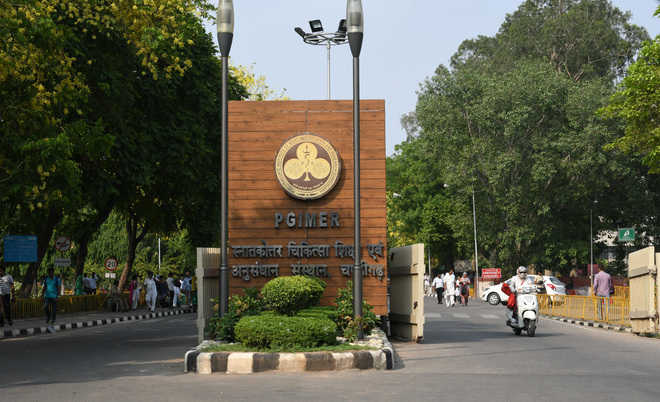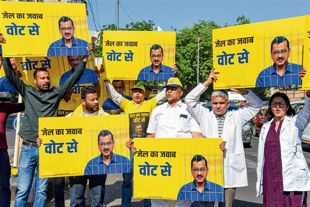
Naina Mishra
Tribune News Service
Chandigarh, February 14
The Post Graduate Institute of Medical Education and Research is in the process of developing a mobile-based application that will help patients to monitor asthma by identifying symptoms and personalised medication.
It is a two-year project in collaboration with the Ministry of Health, Government of India. The app will use a diagnostic and therapeutic algorithm to ascertain the personalised medicines for patients. The neural network in artificial intelligence (AI) will group patients in ‘severe’ or ‘mild’ category to personalise the treatment scheme.
Dr Anil Chauhan, who is associated with the project, said: “A cohort of 10,000 records, as old as 20 years, of asthmatic children will be analysed through ‘deep learning’ (a subset of artificial intelligence). The data will be incorporated in the electronic medical record so that a follow-up on the medical condition of every child can be managed easily.”
Patients will be able to assess the mobile application and send reports of various tests such as pulmonary function tests (PFTs) or the asthma control test to the doctors concerned. Both doctors and patients will be able to view the medical history of the patient.
“Through the database, we can see the types of changes required in treatment guidelines. Currently, the records of patients are being uploaded,” said Chauhan.
Prof Meenu Singh, Department of Pediatrics, PGI, said: “One medicine cannot be prescribed to all patients as there are different kinds of allergies. Precision medicine decides what kind of treatment will help every patient.”
Precision medicine is an approach to patient care that allows doctors to select treatments that are most likely to help patients based on a genetic understanding of their disease.
“All asthmatics don’t react in the similar way to same drugs. The complications are so much that a poorly controlled asthma takes the form of allergic bronchopulmonary aspergillosis (ABPA),” said Prof Meenu Singh, who is also a member of the Executive Committee, Indian Academy of Allergy, Congress Chair, IAACON 2020.
She added: “So, we need to define these things while starting the therapy so that patients don’t develop such complications. Precision medicine is helpful in such cases as there are certain genotypes that are more prone to such fungal response.”
6,000 schoolchildren surveyed for asthma
The Global Asthma Network (GAN), established in 2012, has followed the International Study of Asthma and Allergies in Childhood (ISAAC). GAN phase 1 has been completed by the PGIMER for Chandigarh. There are nine centres in India contributing to the study.
All private and government schools of Chandigarh are part of the study. Children in the age group of 6 to 7 years and 12 to13 years were surveyed for asthma, wheezing and allergy. Around 6,000 children have been screened via set of questionnaires to develop the diagnostic algorithm.
The parents of these children were also screened as asthma is also genetic. Wheezing was found 8 per cent among children and asthma was found in 1-2 per cent. Wheezing is a high-pitched, coarse whistling sound you make when you breathe.
Join Whatsapp Channel of The Tribune for latest updates.



























